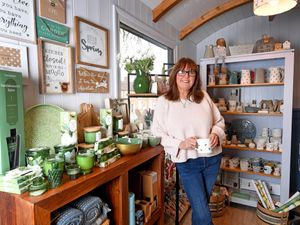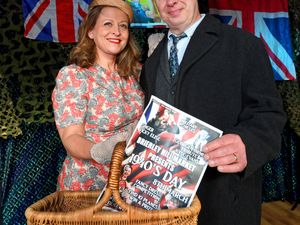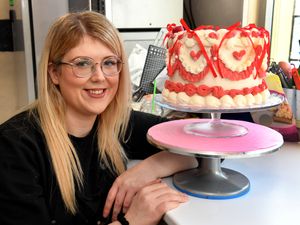What it's like to... Be a barrister
When we heard that author Simon Michael, 61, had launched his second novel this week, we wanted to catch up with him.
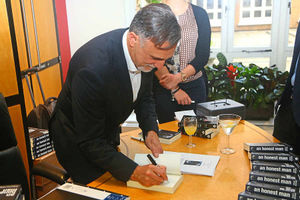
The writer of legal thrillers set in 1960s London is pretty well placed to talk about life in and out of the courtroom – he practised law for 37 years. For 15 of them he was based at the No5 Chambers in Birmingham, the biggest of its kind in the country, handling some of the region's biggest legal cases.
We couldn't think of anyone better to tell us what it's like to be a barrister, so we caught up with Simon after his launch event. Though he's recently retired, Simon tells us about his legal career.
"I was called to the bar in 1978. I had a real feeling that I wanted to do some good and I've represented the poorest and most disadvantaged in society. That's people who are facing the juggernaut that is criminal law against them, and people who have had their children removed from them.
"I've also represented children who have been abused and people who have suffered bereavement at the hands of government officials – whether that be in prisons or in hospitals. I know that this may sound a bit clichéd, but I really wanted to make a difference. The smaller people in society need representation.

"It's an incredibly exciting job. It takes an enormous amount of time and commitment but it's varied, interesting and you can actually feel like you're doing good and helping people. I got assaulted in court once by a defendant because I was getting at the truth and he didn't like it. You have to have your nerve, and keep it."
The best part of his job, Simon tells us, is dealing with people: "I always say to my wife that if the house was to burn down, apart from her and the kids, I'd save the numerous letters that I have from clients. I treasure those.
"I once represented a postal worker who was accused of stealing from the Post Office. He was absolutely innocent, but he had got up the nose of his superiors and particularly the union representatives, and they manufactured evidence against him. I have a card at home from his six and eight-year-old daughters saying 'thank you for saving our daddy'."
Another family that Simon represented are the family of Gillian Astbury who died in Stafford hospital in 2007. Mrs Astbury was 66 when she was admitted to the hospital after a fall. An inquest found that her blood sugar levels were not properly monitored and she slipped into a fatal diabetic coma.
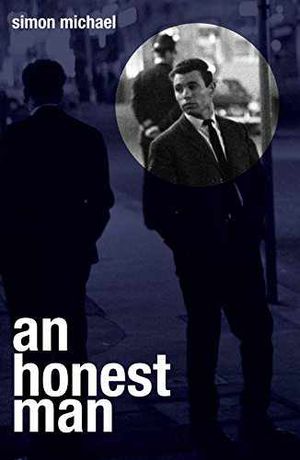
The failure to administer insulin amounted to a gross failure to provide basic care, and Simon was the family barrister during the legal proceedings. He recalls: "The Astbury family were the very first family at the very first inquest about the hospital failure in Stafford. Mrs Astbury had died as a result of negligence, and it was my cross-examination of the nurses and the other hospital officials that led to the first and, as yet, only prosecution against the hospital. That was very important because the family had found it very hard to get the truth."
It's clearly Simon's dedication that has powered him through his successful career, but even with great legal successes, there are problems he cannot solve. "It is difficult because you can only do so much. I used to prosecute for the NSPCC, and we'd try and take children away from families where they'd been abused. I used to think sometimes that it was just a sticking plaster for a gaping wound, but you can only do what you can do. It doesn't become despiriting, you just want to keep on doing it."
Barristers have to love what they do, he tells us, as it's not a highly paid, glamorous job.
"The people now who are practising at the criminal bar are largely doing it because they have a calling. The money is terrible. For junior barristers who are doing criminal work, the legal aid rates have been frozen for years and they've been cut twice.
"That has a number of effects – the first is that you have to have private means, because you couldn't survive otherwise. You earn less than the average plumber does, and sometimes you make no money at all. You've absolutely got to be dedicated to it. We are very lucky in this country to have a very dedicated group of young barristers who are prepared to do the job for next to nothing."
The hero of Simon's books is barrister Charles Holborne, a leading character that's not so dissimilar to himself. He tells us: "He's like me, he grew up on the poor side of the tracks, came from a poor family and was the only person in his chambers that wasn't a public schoolboy. So he feels a kinship with the downtrodden and the criminals, which some of his posher, toffee colleagues don't share. I've used all of these experiences to write my books.
"It's a kind of therapy for me. My hero is a troubled man who tries to do his best in very difficult circumstances. That's how I felt when I started practising. His attitudes to trying to do the right thing, believing in the underdog and believing in what he does – having a fire in his belly – that's me."
Simon's second book, An Honest Man, is now available on Amazon.

